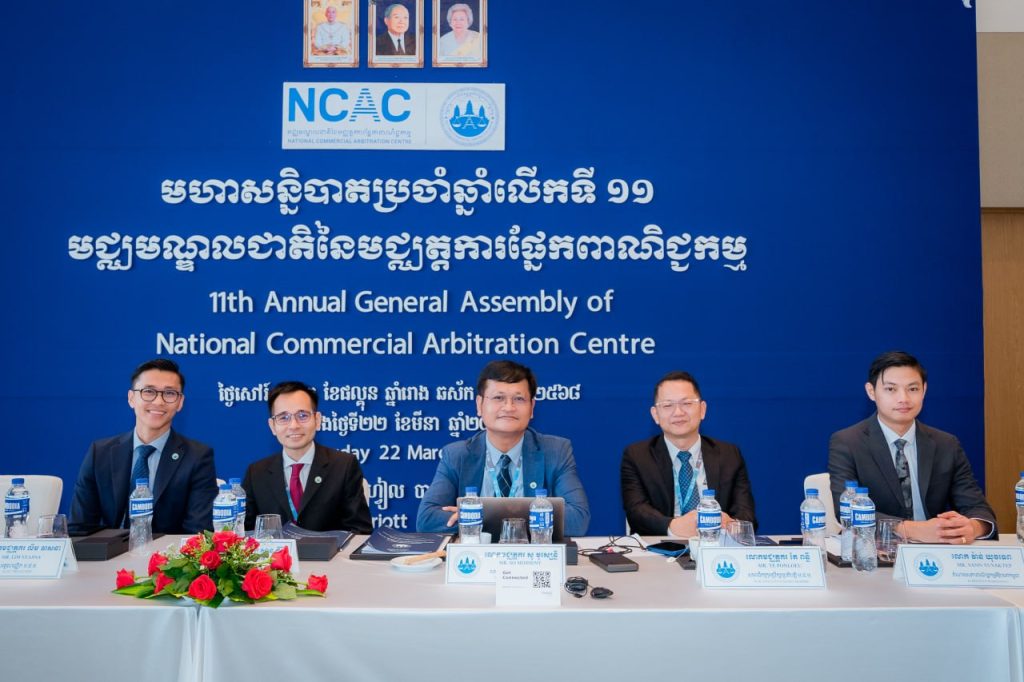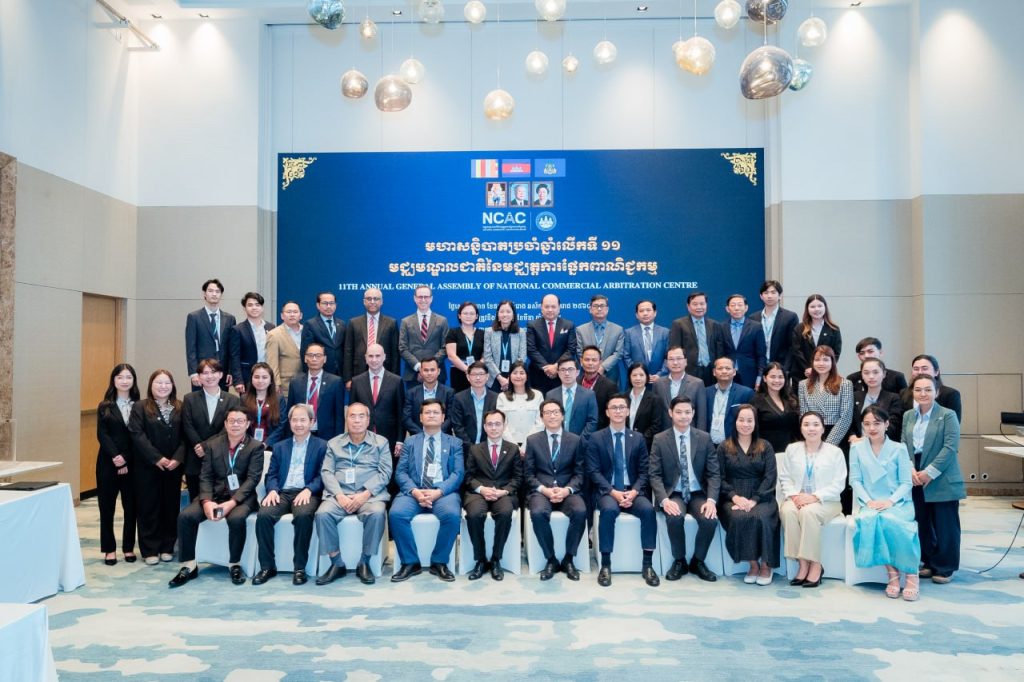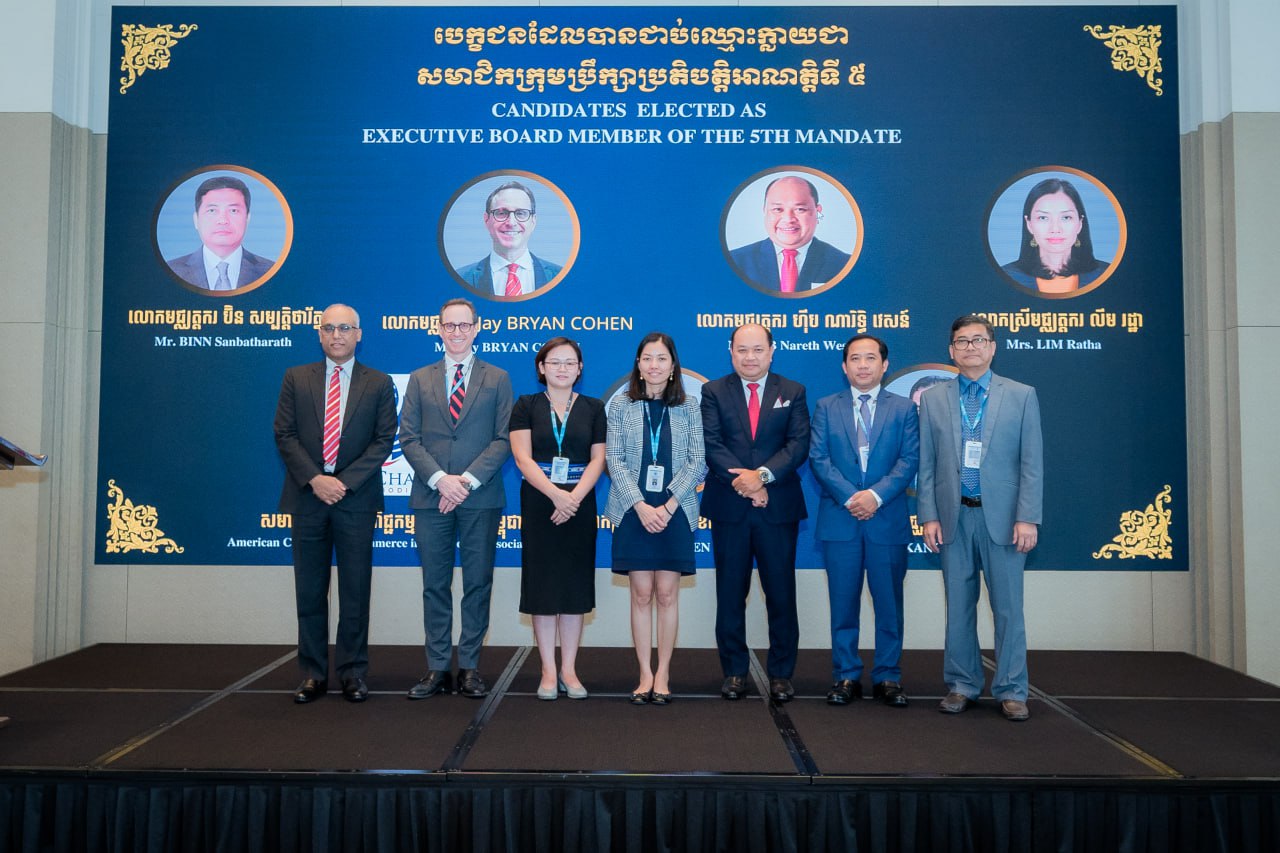Cambodia Investment Review
In a development reflecting evolving dynamics in Cambodia’s international business environment, the American Chamber of Commerce in Cambodia (AmCham) has been elected to represent the private sector on the National Commercial Arbitration Centre (NCAC) Executive Board for its 5th mandate. The decision, made by the NCAC General Assembly, marks a shift in international representation, with AmCham succeeding the European Chamber of Commerce in Cambodia (EuroCham) as the sole legal entity on the board.
The NCAC is a central institution in Cambodia’s commercial legal framework, established under the Law on Commercial Arbitration to provide independent, confidential, and professional arbitration and mediation services for resolving commercial disputes. As the country’s economy continues to attract greater volumes of international investment and cross-border transactions, the NCAC has become an increasingly important pillar for safeguarding business confidence and facilitating trade.
Broadening International Engagement
AmCham’s appointment comes at a time of deepening U.S.-Cambodia commercial ties, with bilateral trade surpassing US$10 billion in 2024. AmCham’s inclusion on the NCAC Board is widely seen as a reflection of this growing relationship and a recognition of the chamber’s active role in promoting American business interests and fostering an open, rules-based trade environment in Cambodia.
Read More: NCAC’s Emergency Arbitrator Issues The First-Ever Interim Award
As a representative of one of Cambodia’s most prominent foreign business communities, AmCham is expected to bring new perspectives to the NCAC, particularly in enhancing the arbitration framework’s responsiveness to the needs of international investors. The move also aligns with broader efforts to diversify Cambodia’s commercial partnerships and ensure that the country’s dispute resolution infrastructure evolves in step with its expanding global ties.

Transition from EuroCham
While AmCham now takes up the mantle, EuroCham’s presence on the NCAC Board in previous mandates helped shape the institution’s trajectory and contributed meaningfully to embedding commercial arbitration within Cambodia’s legal ecosystem. The shift should not be seen as a replacement in the traditional sense, but rather as part of the rotating nature of board representation and a reflection of the growing diversity of Cambodia’s international business stakeholders.
EuroCham’s departure offers an opportunity for the NCAC to incorporate a new set of experiences and regional linkages, particularly at a time when Cambodia is seeking to strengthen engagement with markets beyond its traditional partners. The change also illustrates the evolving priorities of the country’s business advocacy landscape, as new actors take on roles in shaping its legal and commercial infrastructure.
Supporting Economic Development Through Arbitration
Cambodia’s ongoing economic transformation—characterized by rising foreign direct investment, industrial diversification, and cross-border partnerships—has increased demand for effective mechanisms to resolve commercial disputes. The NCAC serves this need by offering a credible alternative to the court system, one that provides neutrality, legal clarity, and international best practices.
With the launch of its 5th mandate, the new NCAC Executive Board will play a pivotal role in furthering the centre’s institutional development. This includes strengthening relationships with the domestic and international business communities, expanding awareness and usage of arbitration services, and ensuring that Cambodia’s legal framework keeps pace with the demands of a more interconnected global economy.

Looking Forward
AmCham’s role on the NCAC Board signals a continuation of efforts to globalize Cambodia’s commercial arbitration landscape. By adding its voice to the board, AmCham brings not only its own institutional experience but also the perspectives of U.S. businesses operating across Southeast Asia. This presence is expected to reinforce investor confidence in Cambodia’s legal system, while also contributing to a more inclusive and internationally attuned arbitration environment.
As Cambodia continues to position itself as a regional business hub, the participation of organizations such as AmCham within key institutions like the NCAC will be crucial in shaping a dispute resolution framework that is accessible, balanced, and responsive to global business needs.
While the change in representation may reflect shifting international priorities, it also underscores the maturing of Cambodia’s commercial institutions—where evolving mandates, broader participation, and institutional continuity all play a role in strengthening the country’s long-term investment climate.





